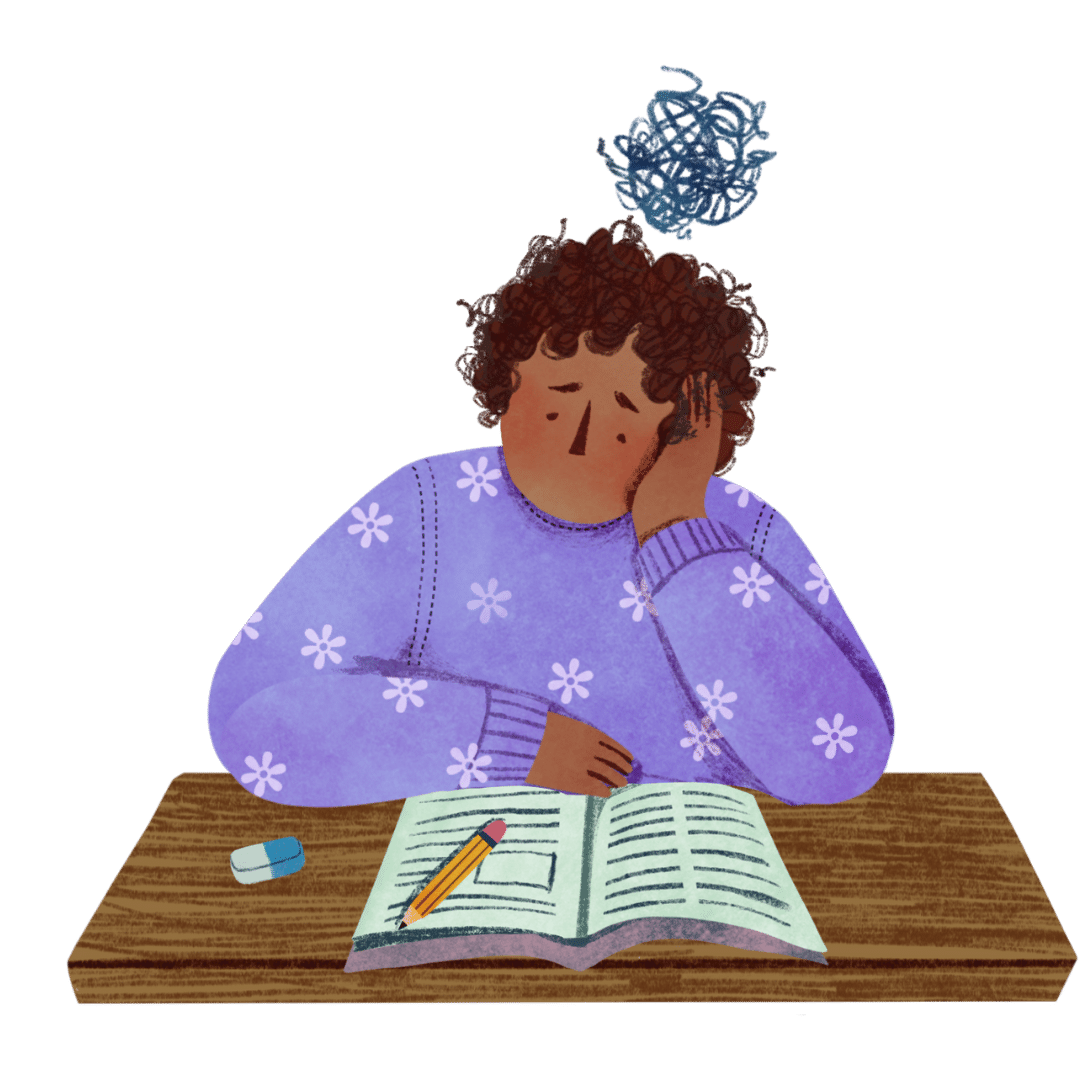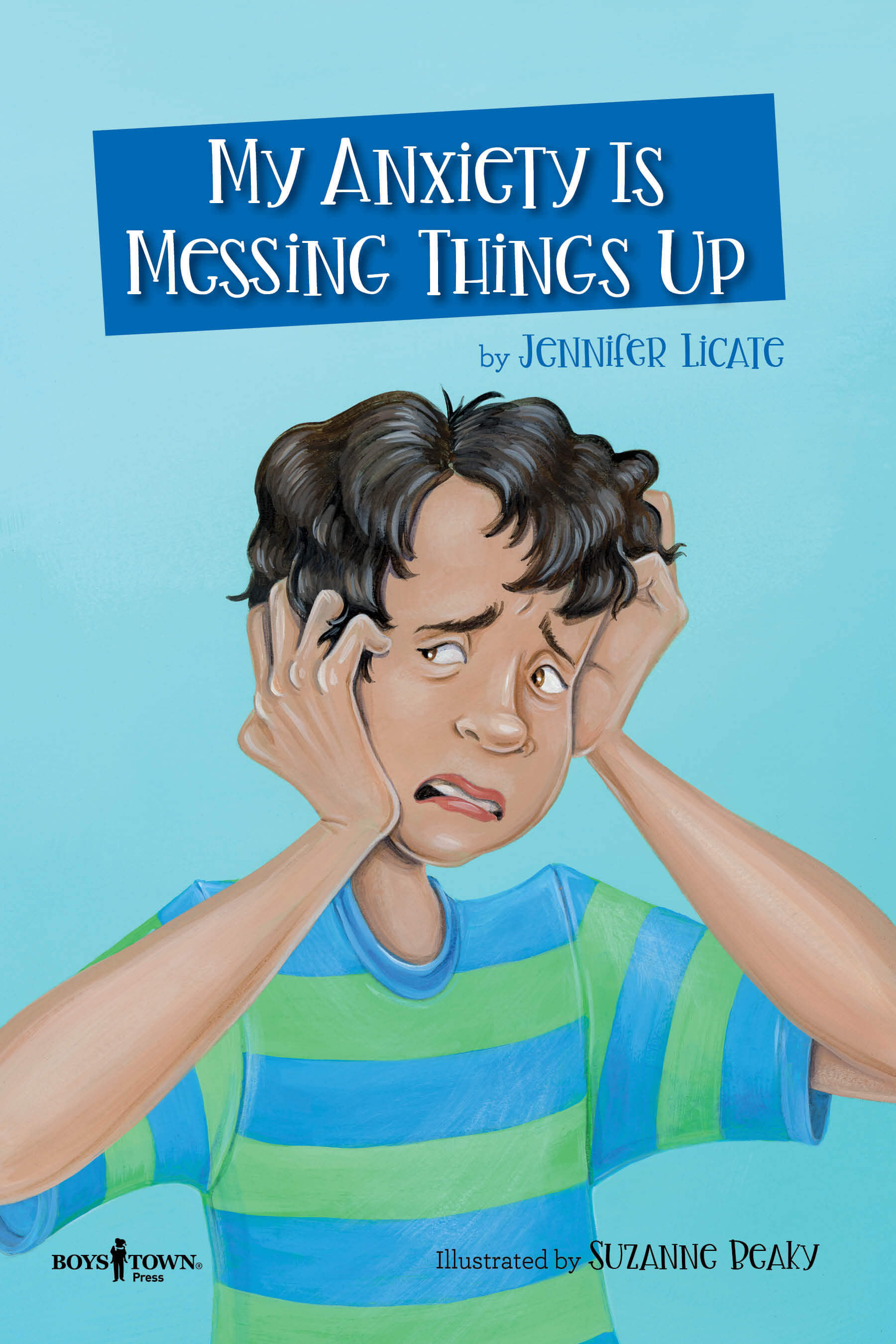Is Your Child Struggling with Anxiety?
Posted by Jennifer Licate, Boys Town Press Author and School Counselor on May 12th 2022
You’ve noticed your child is upset, but you aren’t sure why? Is schoolwork overwhelming them? Is there a conflict with a teacher? Are they having trouble with a buddy or in their friend group?
The first step is simply
to ask your child if something is bothering them. If they can articulate why
they’re upset, you’ll know how to help. But what if they can’t really explain
the changes in their mood and behavior? This could be a sign your child is
dealing with something more serious than fluctuating hormones or friendship
struggles.

Anxiety affects many children. According to the Centers for Disease Control and Prevention, 9.4% of children ages 3 to 17 (or approximately 5.8 million young people) have diagnosed anxiety. If your child is struggling with anxiety, you may see symptoms or behaviors expressed at home that may not be expressed in other environments, such as school, or have yet to be expressed outside the home. That’s why it’s important to know the various signs and symptoms of anxiety, including the following:
Showing physical symptoms: The common physical symptoms kids experience include stomach pain, nausea, or digestive issues, headaches, fatigue, rapid breathing or shortness of breath, pounding heart or increased heart rate, sweating, trembling and/or shaking. When your child experiences or complains of having these symptoms, pay attention and rule out any medical causes. It’s a good idea to keep track of the frequency and timing of symptoms to gain a better understanding of how often your child feels anxious and what triggers their anxiety. The type and severity of symptoms will differ from child to child, but kids suffering from anxiety often experience one or more of these ailments.
Avoiding activities they previously enjoyed: Your child may know what triggers their anxiety and may deliberately try to avoid those activities or environments. For example, maybe you have a daughter who’s resistant to new activities because unfamiliar people and new social situations make her anxious. If this is the case, encourage and support her to keep trying new activities. Agree on a certain set time length or period when she’ll participate in this activity. This will allow her the time and space to grow more comfortable in the new environment while learning and experiencing something new. When children find success in situations they fear, their confidence grows. However, if your child is still unhappy after the agreed upon time period, it’s ok to stop.
If school triggers your child’s anxiety, this can present more of a challenge because school can’t be avoided. In this instance, build in rewards for the end of a successful school week (later bedtime on the weekend or a movie night or more gaming time, etc.). You also want to make sure your child gets enough sleep and is eating well, so they have the energy to deal with the pressures at school. In addition, ensure they have enough time to get ready for school every morning because arriving late can often trigger anxiety.
Expressing fear or worry that bad things will happen: When children feel anxious, they’ll express their worries. Listen to what your child shares and try to identify themes. Reassure them that most of what we worry about never happens. If possible, help them change behaviors to avoid their worries from occurring. For example, if your child is worried about failing a test, help them study and plan out a schedule so they start preparing and reviewing several days before the test. This can teach your child how simple behavioral changes can alleviate some of their worries and make them feel more confident and prepared for exams.
Lashing out in anger or frustration: When a child first starts feeling anxious, they may not be sure of what they’re feeling. It may be hard for them to manage or express their emotions appropriately. This can create frustration and confusion. Instead of expressing what is really going on, they may act out in an angry or frustrated way. This will be most noticeable in situations where extreme reactions are uncalled for.
Sleeping issues (trouble falling asleep or staying asleep): Sleep is often interrupted when children are feeling anxious. Either they have trouble falling asleep or staying asleep. Create a calming nighttime routine to help your child relax so they can get a good night’s rest.
Lacking concentration (on schoolwork or tasks): Anxious thoughts can be all-encompassing, or at the very least distracting to children. This will make it harder to complete tasks that require their full attention.

If your child seems nervous or is showing signs of anxiety, check in with them and ask them what they’re feeling or fearing. Explain what anxiety is and that everyone is anxious sometimes. Share and practice coping strategies with them, such as deep breathing to relax the body or imagining you’re a superhero. You can find even more coping strategies on my blog Helping Children Deal with Anxiety .
If you need additional support or don’t know how to start this conversation, try reading My Anxiety Is Messing Things Up with your child. It’s a quick-read chapter book that will let your child know they’re not alone, and there are ways for them to tame their anxieties.
And don’t forget about the support available at school. Your child’s teacher and the school counselor can be a great resource for help and support! Boys Town also has great advice for moms and dads on how to help their kids build and use a Coping Skills Toolbox. Check it out!
